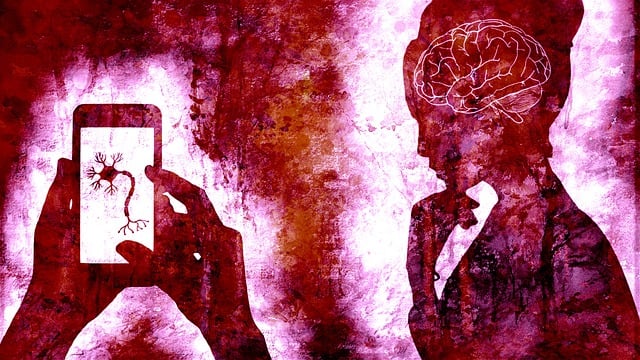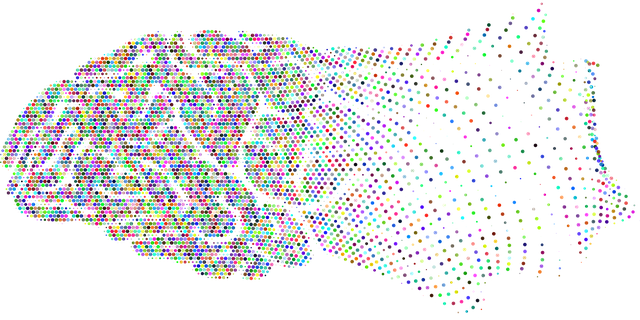Golden Obsessive Compulsive Disorder (OCD) Therapy is a specialized counseling approach addressing intense emotional pain from loss and bereavement, particularly for OCD sufferers. This therapy combines grief counseling with OCD-specific strategies, such as cognitive-behavioral techniques, to help individuals process emotions, develop healthy coping mechanisms, and manage OCD rituals related to mourning. Cultural competency training ensures tailored support for diverse populations, while open communication and mood management techniques foster safe expression during difficult times, ultimately enhancing well-being through active, ongoing change.
Grief is a universal human experience, yet navigating its complexities can be daunting. This comprehensive guide delves into the profound world of loss, grief, and bereavement, offering a detailed overview for understanding these intricate emotions. We explore the transformative power of counseling in managing emotional pain, highlighting its role as a lifeline during trying times. Furthermore, we provide practical insights into Golden Obsessive Compulsive Disorder (OCD) Therapy, empowering individuals to overcome unique challenges associated with grief.
- Understanding Loss, Grief, and Bereavement: A Comprehensive Overview
- The Role of Counseling in Managing Emotional Pain
- Golden Rules for Effective Grief Therapy: Overcoming OCD Challenges
Understanding Loss, Grief, and Bereavement: A Comprehensive Overview

Loss, grief, and bereavement are complex emotions that can significantly impact an individual’s mental health and overall well-being. Understanding these concepts is crucial for effective counseling and support during difficult times. Loss refers to the absence or removal of something or someone valued, while grief is the emotional response to loss, characterized by deep sadness, anger, and a sense of emptiness. Bereavement, on the other hand, is the period of time following a significant loss, where individuals process their emotions and begin to adjust to life without their loved ones.
The impact of loss can be profound, leading to various symptoms such as depression, anxiety, fatigue, and even physical health issues. It’s essential for counselors to provide a safe space for clients to express their feelings openly. Golden Obsessive Compulsive Disorder (OCD) Therapy, for instance, offers effective strategies to manage intrusive thoughts and compulsions related to grief. Additionally, addressing burnout prevention and stress management can be vital in supporting individuals through the grieving process. Mental Health Policy Analysis and Advocacy play a significant role in ensuring accessible and comprehensive counseling services are available to those in need.
The Role of Counseling in Managing Emotional Pain

Counseling plays a pivotal role in helping individuals navigate and manage intense emotional pain associated with loss and bereavement. Through specialized therapy, such as Golden Obsessive Compulsive Disorder (OCD) Therapy techniques, counselors provide a safe space for clients to express their grief, process their emotions, and develop healthy coping mechanisms. This supportive environment allows individuals to confront their sorrow, anger, or guilt, often stemming from significant life changes like the loss of a loved one.
Incorporating confidence-boosting strategies within counseling sessions empowers clients to face challenges related to bereavement head-on. Mental wellness journaling exercises guided by counselors can serve as powerful tools for self-reflection and emotional regulation. Additionally, healthcare provider cultural competency training ensures that those in the field are equipped to offer empathetic support tailored to diverse populations, fostering a deeper sense of understanding and connection during these difficult times.
Golden Rules for Effective Grief Therapy: Overcoming OCD Challenges

Grief therapy plays a pivotal role in helping individuals navigate the complex landscape of loss and bereavement. When it comes to addressing the unique challenges posed by Obsessive Compulsive Disorder (OCD) during this process, there are several golden rules that therapists should follow for effective Golden Obsessive Compulsive Disorder Therapy. These guidelines are designed to foster mental wellness and enhance overall healing.
One crucial aspect is integrating tailored strategies into grief counseling sessions. Mental health education programs focused on OCD should design interventions that address specific obsessions related to loss, such as fear of contamination or rituals associated with mourning. By incorporating evidence-based techniques like cognitive-behavioral therapy (CBT), therapists can empower clients to manage their symptoms effectively while also processing and coping with grief. Additionally, fostering open communication, creating a safe space for expression, and teaching mood management strategies are essential elements in supporting individuals struggling with OCD during their bereavement journey.
Loss, grief, and bereavement counseling play a pivotal role in helping individuals navigate emotional pain during trying times. By understanding these complex emotions and leveraging effective therapy methods, such as Golden Obsessive Compulsive Disorder (OCD) Therapy, professionals can guide clients towards overcoming challenges associated with grief. These evidence-based practices offer hope and healing, fostering resilience and allowing individuals to find meaning and peace in their journey through bereavement.










